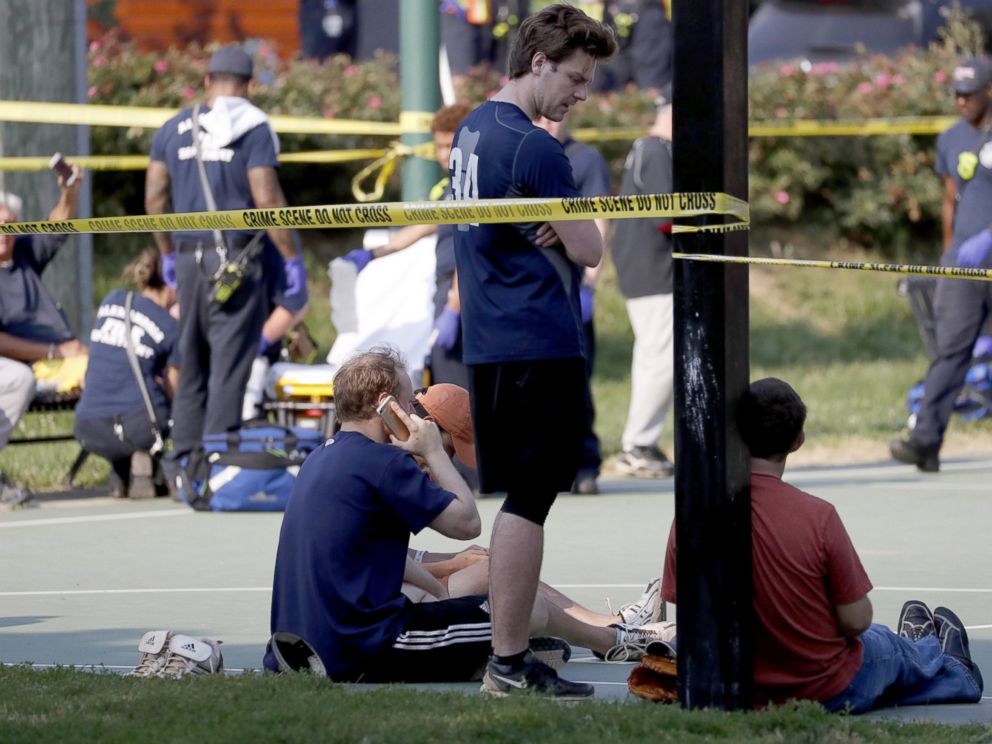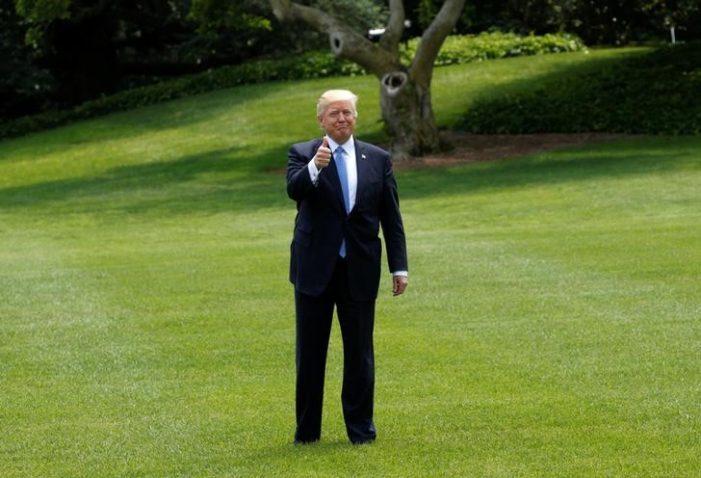I said in a recent column that if Bernie Sanders had spoken of the urgent necessity of psychological revolution rather than incessantly calling for a political revolution, he would be president today. That may have been overstated, but the distinction has suddenly become very real.
 As much as I agree with his diagnosis of what’s politically and economically wrong in this country, I never understood what Sanders was talking about when he repeatedly referred to need for a political revolution. Has there ever been a political revolution without violence?
As much as I agree with his diagnosis of what’s politically and economically wrong in this country, I never understood what Sanders was talking about when he repeatedly referred to need for a political revolution. Has there ever been a political revolution without violence?
I’m not pinning this stupid act of violence against Republican congressmen on Sanders or his supporters. I’m simply saying that speaking of political revolution, as Sanders so often did, makes no sense.
That said, Sanders is correct when he asserted, as he did in Chicago on Saturday, “Today in the White House, we have perhaps the worst and most dangerous president in the history of our country. And we also have, not to be forgotten, extreme right-wing leadership in the U.S. House and the U.S. Senate.”
Ironically, given Sanders youthful Marxist leanings and unabashed socialist label, the only example of a political revolution without violence occurred with the overthrow of the Soviet system in Eastern Europe and Russia.
As I saw firsthand before the USSR dissolved, Russians were even angrier at their system than the most ardent Sanders supporters are now at ours. Though Republicans are fond of fantasizing that Ronald Reagan brought down the discredited, corrupt system, the USSR, like the USA today, collapsed from within.
How would psychological revolution lead to a more just and equitable society? For one thing it will be fundamentally inclusive, while remaining radical. It would not blame others, or even the system for the ills of society, but rather maintain that the ills of society arise from the ills within all of us.
For another, a revolution in consciousness is not based on opposition and conflict. That doesn’t mean opposition doesn’t have its place. Resistance to this demagogic, authoritarian president is essential. But this faddish resistance, espoused even by Hillary, is falling far short.
Political revolution, even with the qualifier “peaceful political revolution,” is based on the view that humans are externally formed.
The truth is that society is first and last a manifestation of the internal reality of individuals. The character of individuals is not determined externally, by social, economic and political systems.
Therefore a revolution in consciousness will begin within the individual, not outwardly, in the political and economic sphere.
Absurdly, a brainstem columnist called for more “raging, nonviolently of course.” Though it’s a truism, if we don’t know how to bring about peace within ourselves, we cannot possibly bring about a peaceful society.
We’ve all played the killing Hitler parlor game. The question is: Knowing what you know now, if you met Hitler right after World War I, would you kill him?
Many people say yes. I argue that Hitler, like all manifestations of evil, is just that, an expression of darkness, not the cause. Of course if you knew that World War II, which killed millions in the death camps and tens of millions overall, could be averted, the temptation to kill him would be strong.
But it would be just that—a temptation. Killing Hitler in 1917 would not have addressed the roiling underlying causes that gave rise to Nazism. And it may have allowed the German scientific and engineering genius of the time to produce the atom bomb. Then what would have happened?
It’s a tragic irony that a Sanders supporter tried to kill Republican congressmen. Killing changes nothing. We cannot kill our way out of this crisis, as America has been trying to do with its global war in terror since 9.11.
One way or another, Trump will fail and fall. Will enough individuals (which literally means “undivided human beings”) pour the foundation of radical change within, so psychological revolution can ignite and manifest?
We all have darkness within us. Being self-knowing means taking complete responsibility for one’s darkness, which is inextricably part of the darkness of collective consciousness.
The dark matter that has accumulated for millennia in human consciousness has become a vast, dry underbrush. A match struck under these conditions could ignite a conflagration.
A psychological revolution means that humankind will go from a fragmentary and fragmenting creature of thought to beings of insight and wholeness.
For the first time in human history, individual transformation, psychological revolution, and political manifestation can go hand in hand, and occur at the same time. And because they can, they must.
Resist outwardly, but radically change inwardly. Do your own spadework, ignite insight and awaken intelligence. Then you’ll be contributing, and be ready when the revolution in consciousness ignites.
Martin LeFevre


